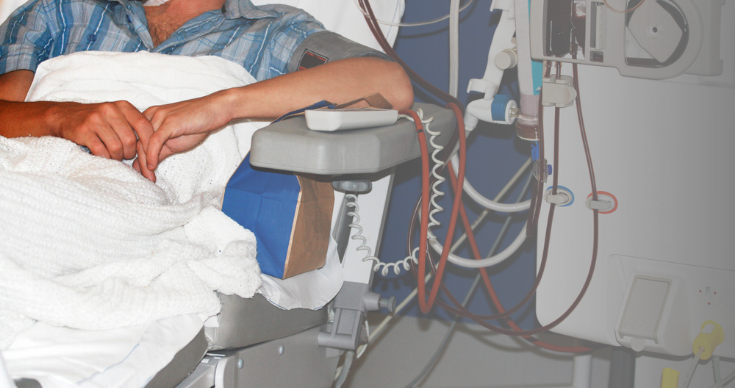How To Prepare For Dialysis – A Patient’s Guide
Kidneys perform the function of purifying the blood, remove excess water and toxins from the body. Dialysis is a procedure that works like artificial kidneys and purifies the blood with the help of advanced machinery. It is done for the people whose kidneys cannot perform its functions anymore.
There are several types of dialysis and it is more common than you might be assuming. However, when a patient is first told that they will need to undergo dialysis, they get scared. Today, we will offer some useful tips regarding how to prepare yourself for dialysis.
Usually, your Dialysis will be done 1 to 4 times a week, and each session takes around 3 to 4 hours. You need to keep the access site clean by washing it before dialysis. Keep your face and access site visible for the staff to keep an eye on, all the time during the process. Dialysis is not generally painful, so while the process goes on, you can be relaxed. You can either read a book/newspaper, watch TV, listen to music or even sleep. Since the machine filters, the blood outside the body and then it is injected back in the body, you might feel cold during the process. So, you can ask for blankets to help you stay warm.
There are some minute complications and side effects that are associated with dialysis. Some occur near the site of injection, these include:
- Bleeding
- Swelling
- Redness
- Tenderness
- Muscle pain
Other side effects are
- Dizziness
- Nausea
- Chest pain
- Breathlessness
- Cramps
- High/low blood pressure
After the dialysis, frequent urination and bloating are quite common. You can also feel very tired and can have body aches. You may need to take rest for the rest of the day as well.
Dialysis can be done at a hospital, doctor’s clinic, pathology center or even at home. However, you and your family members need to have the proper training for the same. Also, it is best to get a doctor or medical staff to oversee the procedure from time to time.
It is quite crucial to ensure that you do not miss your dialysis schedule. However, if you are sick or traveling, you cannot help missing 1 or 2 dialysis sessions. So, in case this happens in your case, don’t forget to inform about the same in advance to your doctor or the team and make arrangements accordingly.
ILS Hospitals offer dialysis facility for the patients suffering from renal damage.
How Dialysis Helps People Live a Normal Life?
Some say getting shots for diabetes each day is quite painful. But this pain is less as compared to undergoing a dialysis. Dialysis is one of the medical emergencies that needs a well-qualified doctor and well equipped hospital to carry out.
So, what is dialysis and why it is carried out?
Normally, kidneys of a healthy person filter about 1500 liters of blood in a day. If the kidneys do not function properly, then the waste builds up in the bloodstream. After a time period, it can lead the individuals to coma and eventually death. This medical emergency calls for the need of dialysis which is an artificial alternative to serve this function.
Dialysis is done about 1-3 times in a week, depending upon the type of dialysis and the condition of the patient. Each session goes on for about 3 to 4 hours. Dialysis averts the level of waste product from reaching the level when it will cause some serious damage to the body. Moreover, it removes the toxic stuffs from the bloodstream and maintains the level of water and minerals in the body.

Can dialysis be considered as a substitute for kidneys?
Apart from acting as a filter, kidneys also secrete chemicals that help in metabolism. Dialysis helps the person suffering from damaged kidneys. Apart from this treatment and medication, the patients also must ensure they keep in check the amount and type of food and drink they consume. No matter how advance medical science is, dialysis cannot replace the kidneys.
Dialysis from a young age can affect fertility in some people, especially women as compared to men. However, most of the people suffering from kidney damage can lead a normal live, work and travel, provided that their destination is suitable enough to carry out dialysis.

Whether to do it at home or at the hospital?
It can be carried out at home as well. But before making this decision, the patient and their caregiver must be aware of the entire process and mechanism thoroughly. It is suitable for only those patients who remain in stable condition during the procedure. Also, their home environment must be suitable for carrying out dialysis.
However, dialysis is best carried out in hospital, where doctors monitor and assist in case of any problem. Thus, it is advised to let the professions carry out these procedures in a more sterile and secure environment.












